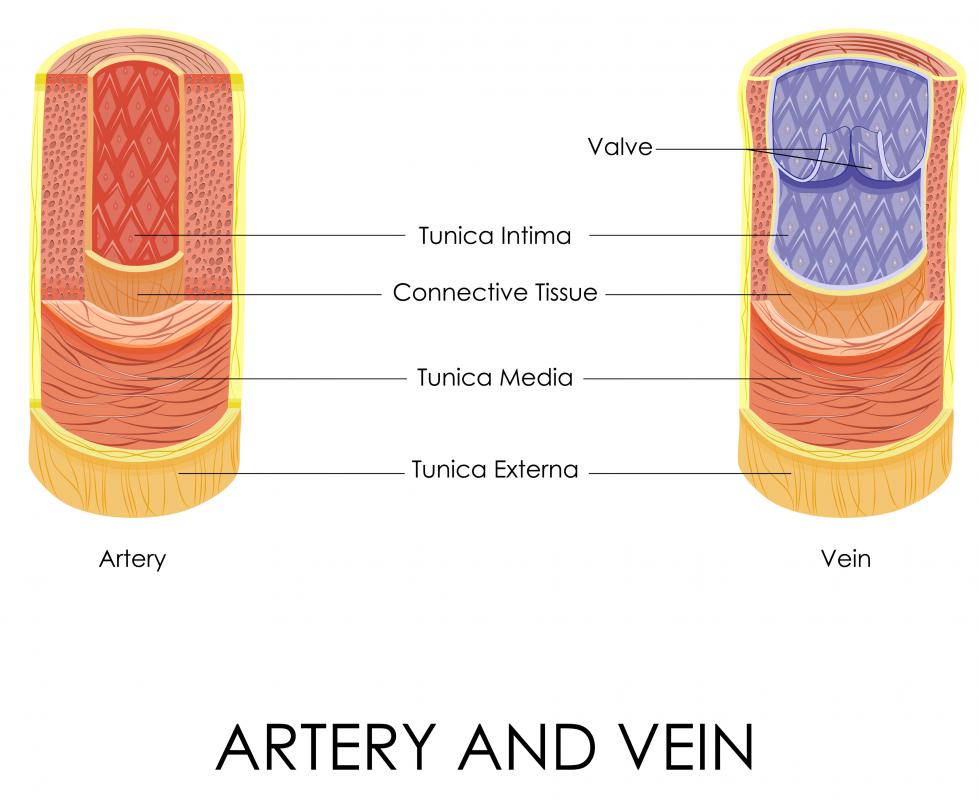At WiseGEEK, we're committed to delivering accurate, trustworthy information. Our expert-authored content is rigorously fact-checked and sourced from credible authorities. Discover how we uphold the highest standards in providing you with reliable knowledge.
What is Angina?
Angina, also known as angina pectoris, is a painful but temporary heart condition caused primarily by constriction of veins and arteries. Once these blood vessels become tight, the heart's oxygen supply is reduced and the result is pain in the chest, jaw, neck, throat or arms. The pain usually subsides once the blood flow is restored. In essence, this condition is the cardiac equivalent of a headache.
The most common cause of symptoms is a condition called arteriosclerosis, or a hardening of the arteries. As veins and arteries age, they lose much of their elasticity. When the heart rate increases, as it does during exercise, the oxygenated blood must pass through very narrow blood vessels. The heart receives less of this blood, causing it to feel deprived. The resultant spasming of the heart muscle can cause other muscles and nerves to react in sympathy. Many people feel a tightening sensation in the chest and a temporary anxiety until the pain subsides.

Angina pectoris is not to be confused with a full-blown heart attack, although they share some common symptoms. Most cases are triggered by a definite, stressful event such as overexertion or emotional agitation or exercise. There is a form of angina that can occur without warning, however, but it generally happens during overnight hours. The condition can be a symptom of a more serious cardiac condition, but it usually resolves within a few hours by itself. A heart attack is usually characterized by a heavier and duller pain in the chest, compared to the feelings of pressure in the sternum caused by angina.

Treatment is generally aspirin or groups of drugs known as vasodilators, familiar to those with asthma. Physicians can order a series of stress tests conducted on a treadmill with an ECG machine. Frequent flare-ups can be a sign of more serious cardiac problems, but many sufferers can keep it under control through lifestyle changes and medication. A doctor may recommend patients lose weight, quit smoking and avoid foods with high cholesterol. High blood pressure can also contribute to chronic angina, so many sufferers are urged to take blood pressure medications and find ways to avoid or relieve stress.

This article is not meant to replace the advice of a qualified medical professional. If you experience severe chest pains, consult a doctor immediately for further instructions. The difference between indigestion, angina and a true heart attack cannot be self-diagnosed accurately.
AS FEATURED ON:
AS FEATURED ON:



















Discussion Comments
A friend of mine suffers from pain in her side and now that has calmed and pain has surfaced in her chest and arm. All tests were performed and all came back normal. What do you think this could be and what form of action should my friend seek?
Post your comments